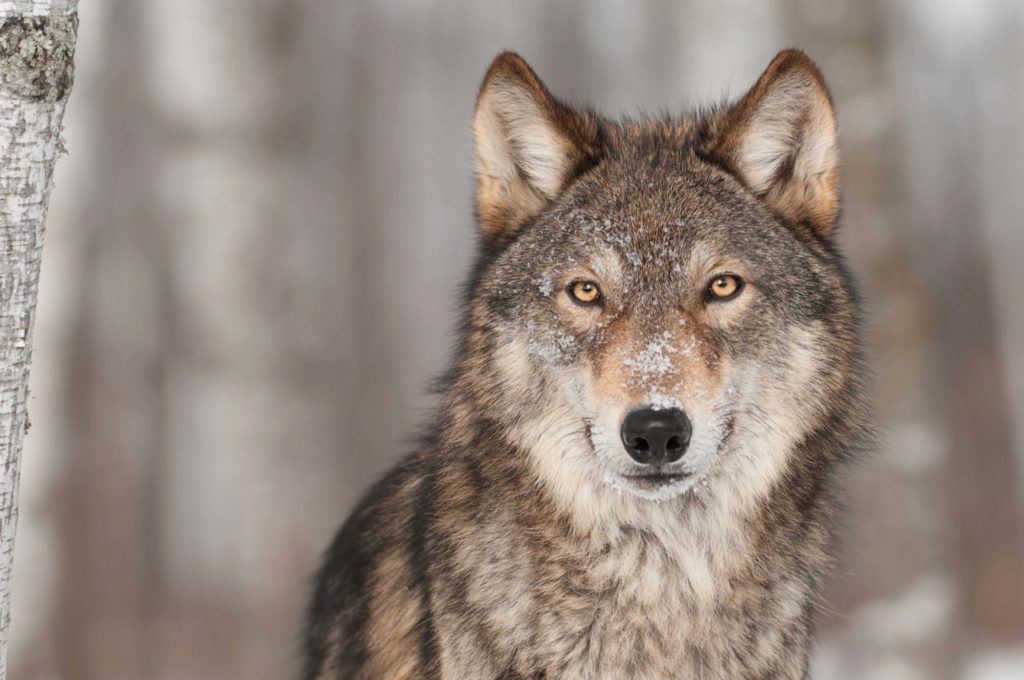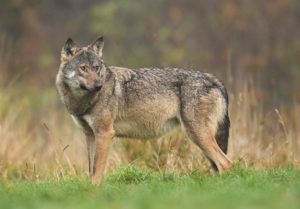
The reintroduction of gray wolves to public lands in Colorado is not only a question set to appear on the state ballot in November, but is also a wildlife management issue that can be defined as a “wicked problem,” a persistent social challenge intrinsically tied to human emotions and behavior.
A comprehensive approach to such issues requires careful consideration of human values, beliefs and actions to achieve the best outcomes.
Colorado State University scientists are helping to develop collaborative approaches to address wolf recovery, and in the process learn ways to successfully approach other “wicked” wildlife management issues in the future.

Rebecca Niemiec, assistant professor in the Department of Human Dimension of Natural Resources at CSU, partnered with Francine Madden from the Center for Conservation Peacebuilding to host a workshop in early February with 31 representatives from Colorado’s ranching communities, hunter and outfitter groups, environmental non-governmental organizations, sovereign Native American nations, state wildlife officials and other CSU experts.
“There is a lot of divisiveness among different groups over the idea of wolf reintroduction, and this conflict between stakeholders can create negative outcomes for both people and wolves,” explained Niemiec. “We wanted to take this opportunity to proactively discuss how we may manage wildlife like wolves in a way that reduces this social conflict by bringing people with diverse perspectives together in constructive dialogue.”
Focus on reducing conflict
Over the course of two days, the group focused on the question: “If wolf recovery occurs in Colorado, how can we develop and implement collaborative approaches to minimize stakeholder conflict and human-wolf conflict?”
Participants analyzed the existing social conflict around wolf reintroduction in Colorado, identifying concerns, hopes and visions for wolf recovery in state. They also discussed some key issues that must be addressed in a wolf restoration or management plan to reduce conflict over wolves and what next steps for reducing that conflict might look like.

They concluded that conflict about wolves goes beyond the pending ballot initiative and includes deeper, more long-standing issues, such as unresolved debates over public lands management, different cultural values of wildlife, and the impacts of changing demographics and values on more traditional ways of life.
“In conflicts characterized by ‘us versus them’ polarization — where people feel their way of life or values are under attack — conventional conflict resolution or stakeholder engagement approaches may shortcut the real work that’s needed and thus fuel another cycle of destructive conflict and unsupported decisions,” explained Madden.
“On the other hand, well-designed conflict transformation processes can heal the divide and support the development of shared wins and lasting decisions. What happens going forward in Colorado can’t just be about making a singular decision; it has to include a reconciliation of what got society to this point in the first place. It’s about making an investment today in the Colorado of tomorrow — where diverse people and the animals and natural resources they care about thrive,” she added.
New engagement methods needed
According to Niemiec, one key takeaway from these discussions was that to reduce the deeper, more long-standing drivers of social conflict over wolves, traditional processes for public engagement, which ask the public to provide input through public forums or comment periods, are inadequate.
“We need more inclusive decision-making processes that facilitate constructive dialogue and consensus-building among representatives from diverse governments, stakeholder groups, scientists and wildlife managers,” she added. “Without this type of respectful dialogue and shared decision-making, these deeper drivers of conflict will persist, creating negative outcomes for both people and wildlife.”
By the end of the workshop, participants expressed interest in and hope that a similar collaborative process will occur for the development of a gray wolf management plan in Colorado.
The diverse perspectives and key take-aways shared at the workshop have been documented in a summary report and are publicly available online.